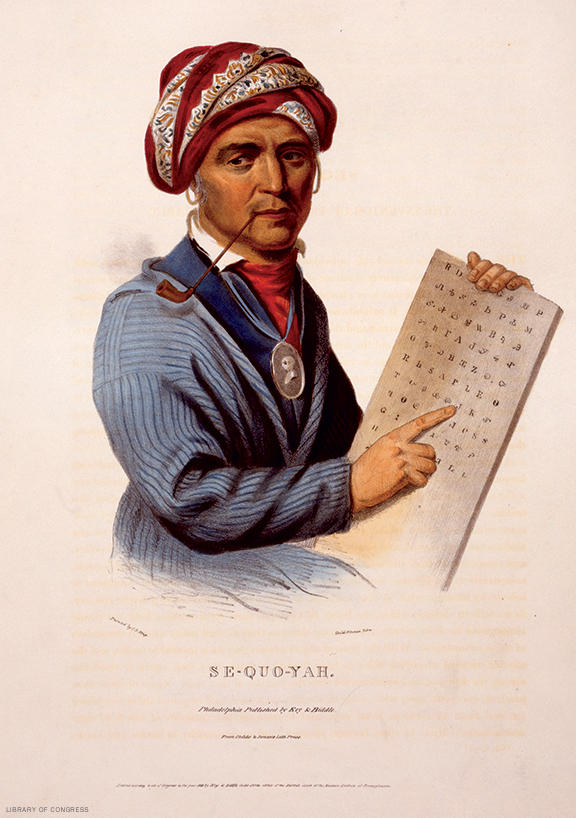
To conclude its yearlong lecture series on Origins, the Penn Humanities Forum welcomed theologian Elaine Pagels in April to talk about the Christian doctrine of Original Sin. A professor of religion at Princeton, Pagels has attracted praise and venom in unusual measure for her writings on early Christianity. Her 1979 bestseller The Gnostic Gospels was named one of the best 100 nonfiction books of the 20th century by Modern Library—and listed as one of the worst 50 books of the century by the conservative Christian Intercollegiate Studies Institute. Speaking at the Penn Museum, Pagels contended that the doctrine of original sin, developed by Augustine of Hippo in the late 4th century, “would have astonished most Jewish and Christian readers” of the Adam and Eve story until that time. In Augustine’s hands, she argued, a cautionary tale long considered to confirm “moral freedom as humankind’s greatest capacity” became something altogether different—and far more political.
If you look at how Augustine describes the onset of original sin, it’s very interesting that he uses political language. In a way, it’s a language of central politics. Augustine says that in the beginning … Adam discovered within himself the first government in the world, and that was the government of the mind over the passions—over the body. But the primal couple soon experienced within themselves not only the first government on Earth, but also the first revolution. Because the story is told like this, and this is his language: that when Adam disobeyed his own ruler, who was God, God sent a punishment that fit the crime. He allowed Adam’s body to disobey its master. So the body, Adam discovered, that was previously obedient to him, now ‘rebelled’ against his mind … he experienced what [Augustine] calls a ‘rebellion in the flesh,’ a spontaneous uprising, so to speak, of what he called the ‘disobedient members’ … Specifically, he says, the libido—the sexual desire of the disobedient members—arose in the first human beings as a result of the sin of disobedience …
Augustine’s view not only contradicts what rabbis to this day would say about the story of Adam and Eve, but what Christian teachers to his day would have said. It was axiomatic to most such teachers that when God created Adam and Eve, he created them with what rabbis would have called the yetser harov and the yetser hatov—the good impulse and the evil impulse—and the story of Adam and Eve was told to encourage us to follow the good impulse and avoid the evil. But Augustine said, No, not even the greatest ascetic, not even the greatest saint actually achieves moral freedom in this life—although if we are baptized, it may be that after death we will attain it. In the meantime, the moral of the story is that our species has lost the capacity to govern itself. Because we are overrun by violent passions, nothing can help maintain social order except the use of coercive force.
In the first place, he says, since Adam—being the male and therefore more rational—was led into sin, God punished the woman, because she’s more susceptible to passion, by ordering, Your husband shall rule over you. And thus the passions of women henceforth must be controlled by male domination. Second, since now no human beings—even the more rational males—can adequately control their instinctive passions, we must have government that rules by military and political violence. And to this day, many Christians draw on Augustine’s view of human nature, and above all his view of original sin … to discuss the necessary uses of force, including war, in human society.
How on earth did this wildly revisionist reading of Genesis come to prevail in Christian churches throughout the Roman Empire from the 4th century on? How did it happen that the earlier message about human freedom—a message that had dominated Christian teaching for over 300 years—came to be regarded as heresy, while Augustine’s theory of original sin battled for acceptance among Christian bishops and finally won more votes?
It wasn’t just the 17 Numidian stallions that Augustine sent to the pope of Rome to sway his vote … In fact, the success of Augustine’s theological revolution coincided with what may be the most astonishing transformation in the history of Christianity. As you know, Christians had lived marginally as hated and persecuted sectarians for about 300 years until the surprise conversion of Emperor Constantine. At that point, of course, they suddenly found themselves members of a powerful, state-approved religion whose patron was the emperor himself. Now in this totally changed situation, I suggest, the earlier proclamations about human freedom which were forged by Christians like Justin—people who were defying Roman society—that theory didn’t fit so much the situation of Christians who suddenly found themselves to be the emperor’s brothers and sisters in Christ.
But Augustine’s theory could and did, in a way that offered to make theological, psychological, and political sense. This theory enabled Augustine and many of his contemporaries to come to terms with two startlingly new realities—realities that must have seemed kind of a contradiction in terms to many of them. First, a Christian empire: strange. And on the other hand, a state church. Augustine was probably one of the first to grasp the political implications of the theory of original sin. He urged it upon his fellow bishops and upon the emperors by arguing persuasively for its political expedience. Perhaps it shouldn’t surprise us that Augustine was the first man in the history of Christianity, so far as we know, to write a defense of the Christian use of force—not only against pagans and Jews, and later heretics, but also against non-Catholic Christians.
—T.P.



